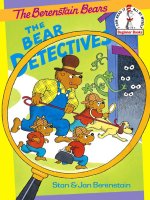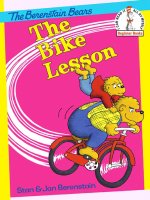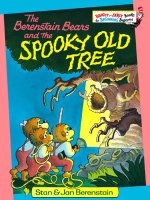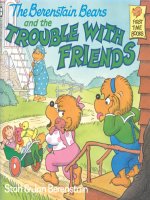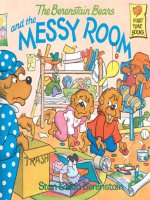Emma thompson nanny mcphee and the big bang (v5 0)
Bạn đang xem bản rút gọn của tài liệu. Xem và tải ngay bản đầy đủ của tài liệu tại đây (3.16 MB, 148 trang )
.
Bloomsbury Publishing, London, Berlin and New York
First published in Great Britain in March 2010 by Bloomsbury Publishing Plc
36 Soho Square, London, W1D 3QY
This electronic edition published in April 2010 by Bloomsbury Publishing Plc
Copyright © 2010 Universal Studios Licensing LLLP.
Nanny McPhee and the Big Bang © Universal Studios. All rights reserved
The moral right of the author and illustrator has been asserted
All rights reserved.
You may not copy, distribute, transmit, reproduce or otherwise
make available this publication (or any part of it) in any form, or by any means
(including without limitation electronic, digital, optical, mechanical, photocopying,
printing, recording or otherwise), without the prior written permission of the
publisher. Any person who does any unauthorised act in relation to this publication
may be liable to criminal prosecution and civil claims for damages.
A CIP catalogue record of this book is available from the British Library
ISBN 978 1 4088 1206 8
www.bloomsbury.com
www.nannymcphee.co.uk
www.emmathompson.co.uk
Visit www.bloomsbury.com to find out more about our authors and their books
You will find extracts, author interviews, author events and you can sign up for
newsletters to be the first to hear about our latest releases and special offers
g
A Warning to the Reader
g
This is a slightly odd book, being a mixture of story and diary. It is the story of Nanny
McPhee and the Big Bang and the diary of the filming of the story, all mixed up.
g
I did not write it like this on purpose – it just happened while I was on the film set and
seemed an interesting way to do it. If you get bored with the story you can always just
read the diary. And vice versa. Good luck.
g
For Grandpa Eric,
Grandma Fifi,
Grandpa Doug
and Grandma Yonnie
and their grandchildren,
Ernie, Gaia, Walter and Tindy
g
g
The Diary 1
Here we are on the first day of the shoot of the new Nanny McPhee film. I am playing
Nanny McPhee, but not today because she does not appear in this scene. Today I am just
the writer. I am here in case anyone needs to change what they say or needs something
extra to say or needs to CUT DOWN what they say.
We are on the set of Deep Valley Farm and a most magnificent set it is. Months ago,
Susanna White (the Director – see Glossary) and Simon Elliott (the Designer – see
Glossary) saw this location and decided it was perfect for the story. So Simon drew lots of
pictures and hundreds of people worked like stink and now I am sitting in front of a
beautiful old farmhouse with a dovecote and outhouses, an original ancient barn and a
fascinating garden, which ALL looks as if it has been here for hundreds of years but in fact
was only finished last Thursday.
I’m wearing mud-covered snow boots, leggings (ill-advised) and an enormous puffy
jacket. I am sitting next to my friend Lindsay Doran, who is producing the film (see
Glossary). To our right is the Scratch-O-Matic (see page 17); to my left, the Sound
Department (see Glossary). It’s raining and we have had to stop filming.
‘Why is it raining?’ I whine to Lindsay.
‘Because we are shooting this picture in England during the summer,’ says Lindsay. ‘Of
course it’s raining.’
Lindsay has produced lots of films in England during the summer and, even though she
is American, she understands our weather. Everyone is squelching about, looking
depressed, especially Mike Eley, the DP (see– you get the idea).
g
The only thing I can usefully do is to start writing the first chapter of The Story. There’s
nothing else to do. Soon I shall also be IN THE WAY. That’s how it always works on a film
set. You’re nearly always in the way. But I shall perch here for a minute and begin. The
story is called Nanny McPhee and the Big Bang. You’ll see why later . . .
Families are weird. You’d think that people who live and eat and sleep in the same place
would always have a lot in common. But sometimes they don’t have anything in common
AT ALL. You can have a brother who really likes ballet and a sister who thinks it’s girlie.
You could probably have Darth Vader and Mickey Mouse in the same family; they’re that
weird.
The story I am about to tell you concerns one such family . . .
g
g
The Story 1
The grandparents in our story were so posh that they weren’t even called Mr and Mrs.
They were called Lord and Lady Carrington. Everyone assumed they were happily married
because they behaved terribly well and wore very expensive clothes, but the truth of the
matter was that no one really knew because no one had ever seen or heard them talking
to each other. They had two daughters called Prunella and Isabel.
Prunella was the eldest and was conceited and vain. All she wanted to do was to go
shopping or hunt small animals for the purpose of killing them. Luckily, she is not going to
be in our story very much.
All Isabel wanted was to have a real family of her own. By real, she meant a family
that had people in it who actually loved each other. When she expressed this one day at
breakfast, everyone went very quiet. Lord Carrington coughed, but that was the only
response. Like I said, weird.
At any rate, the two sisters and their Very Grand Parents rubbed along like people do
even when they haven’t anything to say to each other, until one day there was an
Important Garden Party.
Lord and Lady Carrington dressed their girls up in their prettiest frocks (when I say Lord
and Lady Carrington, I mean, of course, their servants – but you knew that), and took
them along, hoping to find them husbands.
Prunella knew exactly what was expected of her. She made a beeline for the richest
young lord present and pretended to like everything he liked, even though she wasn’t
remotely interested in war machines or maps of seventeenth-century Europe.
Isabel, however, spotted a rather lovely meadow beyond the grounds of the palace
where the party was taking place and decided to go and look for moles. Leaving her
enormous bonnet under a hydrangea, she hitched up her posh frock and climbed over the
wall.
It was a pretty day and Isabel was looking very pretty in it. So when a young farmer by
the name of Rory Green came by in his pony and trap and saw her, he fell instantly in
love. Impulsive by nature (as anyone who knows anything about the world would already
have realised, and, quite frankly, it’s pretty stupid to fall in love with a pretty girl in a
pretty frock in a pretty field on a pretty day. Don’t. Find out what she’s like first), he
parked the pony and leapt into the field to say hello. The fact is that Isabel was also
quite impulsive and, upon seeing the handsome young man leaping over the gate and
hailing her with quite the nicest smile she’d ever seen, she went and fell instantly in love
too.
g
A recipe for disaster, I hear you cry, and under less fortunate circumstances you would be
perfectly right. But as luck would have it, Isabel and Rory were not only impulsive but
really enjoyed the same things. Things like egg and cress, spiders’ webs after rain, the
smell of cow parsley and, surprisingly, early thatching techniques. They realised very
quickly that they simply had to get married and have babies together.
Well.
You can imagine the reaction.
Poor Prunella, who’d done so well and got engaged to someone she’d soon end up
loathing, was completely ignored as Lord and Lady Carrington tried to persuade Isabel
that she was delusional and needed six months in a Belgian sanatorium to cure her of her
fantasies. There was a lot of sputtering and muttering and cold baths and doctor’s
recommendations until finally Isabel got so cheesed off that she packed a small bag and
eloped.
Eloping doesn’t much happen any more, but it must have been great fun. What
happened was this: you decided you wanted to marry someone, your family all said ‘no’
and threatened to lock you up, upon which you crept out in the middle of the night, got
into a pony and trap and galloped to Gretna Green, which is the first bit of Scotland,
where you were married by the blacksmith! How exciting is that? What’s more,
afterwards the blacksmith re-shod your pony for the journey home.
So that’s what Isabel and Rory did, and of course Lord and Lady Carrington were very
cross and, much as you might expect, went and cut her off without a penny.
g
g
The Diary 2
g
It’s not raining any more but it is rather damp and cold. I am very jealous of Rory and
Isabel in their sunny field. Why is the weather always so much better in stories? One of
our Other Important Producers (see Glossary) has come to check and see we’re all
managing. He’s called Eric and is sometimes very nice to us.
‘Very nice’ meaning that if he thinks we are doing well he says supportive things like ‘It
all looks fantastic’ and ‘I can’t believe that’s not real mud’ and ‘Well done’ and ‘Carry on’.
But if he thinks we are not doing well he doesn’t say any of that but stomps about looking
fierce and saying things like ‘Why haven’t you finished that bit?’ and ‘Hurry up’. It’s all
right. That’s his job.
g
We are on our fifth Set-Up (see Glossary) and it’s only 11.30. That’s not bad going for the
first day. Plus, it’s not a normal first day. It’s a first day featuring five children, a cow,
some chickens, a goat, two feet of mud everywhere you go, three cameras and 140 crew
people. Even Steven Spielberg would go a bit green at the thought. Susanna’s eyes are
twinkling even more than usual.
We are all covered with mud from head to toe. But it’s not real mud so it doesn’t feel
the same. It’s just as much fun and less smelly. It’s made of sand and water and some
chemical beginning with B – wait, let me ask one of the Art Department . . . Bentonite,
apparently. That means it doesn’t dry up like normal mud. It also means that unlike
normal mud, it’s quite scratchy to touch. It makes the most wonderful squelching noises
when you walk in it and there is a prize offered for the first person to slip over properly.
g
g
You will, by the way, be appalled to hear that the real Nanny McPhee story hasn’t even
started yet. The bit I’ve just told you happened before this story starts. But I think it’s
good to know a little about someone’s family, and Isabel is the mum in our story so she’s
very important.
I am sitting on a pile of hay.
I am in the Camera Department’s way.
Emma, the Camera Loader (see Glossary) for ‘A’ camera, has just asked Russ, the
Focus-Puller (see Glossary), this question:
‘What was your last T-stop?’
I don’t know what she’s talking about. But I know it’s not about stopping for tea.
Anyway. Where were we? Oh yes.
g
g
The Story 2
Isabel and Rory were married by the blacksmith, moved into Rory’s farm, and had three
children called Norman, Megsie and Vincent. They were about to live happily ever after
when a war broke out.
This, I regret to tell you, is typical of Real Life.
Just when you think everything’s fine and dandy, something happens and you have to
ADAPT.
Adapting is not as much fun as eloping, although it can be character-building.
It certainly was for Isabel, Norman, Megsie and Vincent. Poor Rory Green had to go off
in an itchy uniform not quite knowing where and not quite knowing when – or even if –
he’d be back. It was ghastly.
The night before he left, Isabel (or Mrs Green as I’ll call her from now on) cooked his
favourite meal. It was fried cheese, which is cheddar grated on to a tin plate, grilled till
it’s melted, with a bit of vinegar or Worcestershire sauce tipped in and eaten with a heel
of bread. The cheese always burns a little at the edges and these you must scrape off
with a blunt knife and save until last because they are the best bits.
No one was very hungry.
They all scraped off their burnty bits and gave them to Mr Green. He ate them up and
smiled and smiled, which was good of him because he was the least hungry of them all
and actually felt more like crying than smiling.
‘Don’t forget to scratch the piglets,’ he said cheerily.
Ah.
Not the sort of thing you hear every day. Or maybe you do, what do I know? You might
have the sort of dad who says things like ‘Don’t forget to scratch the piglets/cows/goats/
elephants’ all the time. Lucky you.
At any rate, it gives me the chance to tell you a bit more about Mr Green before he
goes off because you might as well know exactly who you’re missing.
I expect you remember he’s handsome, impulsive and has the nicest smile ever. Unlike
Mrs Green, he was born to parents who understood each other quite well and were very
happy as a result. They were farmers and had two boys, Rory and Phil. As I keep telling
you, families are weird. In spite of all their parents’ niceness, Rory and Phil were very
different kettles of fish. Rory was kind, loving and imaginative. He could mend virtually
anything and felt all sorts of things in his bones that turned out to be true, like when one
of the new-born lambs was in trouble or when the cow slid into the river by mistake. Phil,
on the other hand, was lazy, nervous and ambitious. He had no discernible talent for
anything. Nobody’s fault, that’s just how he was. As a result, he was jealous of his brother
and very keen to do things like put salt in his porridge, marmalade in his wellies and frogs
in his bed.
Mr and Mrs Green worried about Phil’s behaviour but were too busy on their farm to
find ways of helping him to change. So he was just left as he was.
g
g
The Diary 3
g
There is a cow in our story called Geraldine. She is being played by a film cow whose
name is Beryl. She arrived on set an hour ago, took a violent dislike to the pretend mud
and refused to leave her trailer. This is why they tell you never to work with animals.
They are unpredictable. Also, one of my jackdaws has been naughty. In our film there is a
jackdaw called Mr Edelweiss. Some of his bits will be computer-generated but a lot of his
acting will be done by real jackdaws. The Animal Trainers (see you-know-what) and I
have been working with three different birds for six weeks already. They are called Devil,
Al and Dorian. It is Devil who has been naughty. Last night he caught a mouse (which
wasn’t naughty) and ate it (which was). It means that overnight he put on 8 grams in
weight which means that he can’t be fed today and consequently can’t work because he
will only work for food. I had no idea jackdaws were such finely tuned instruments.
Apparently if they eat too much they can’t fly or they explode or something.
g
Martin Harrison is our First Assistant Director (see Glossary) and, apart from the Director,
is really the most important person on the set. He’s just come up to me and said that
when he first read the script he thought to himself, Oh, what a lovely simple story. He
now realises that the lovely simple story is without a doubt the most complicated film
he’s ever worked on. This is largely due to the preponderance of animals and children and
also goes to prove once again that simple is never easy.
I am watching Oscar Steer, who, aged six, is our youngest actor apart from the piglets,
who are only a month old. He is so clever and funny. He can even run in the mud.
g
g
g
The Story 3
So now you know a bit about Phil and Rory. There’s just one other important thing I have
to tell you. Rory adored his children and would spend hours making things for them. The
best thing he’d ever made was a machine called the Scratch-O-Matic. He’d had the idea
one long summer’s day as he was watching Vincent scratching the piglets with the end of
a broom. Piglets love being scratched and they would jostle each other for position under
Vinnie’s broom handle. Vinnie would try and scratch each piglet equally but inevitably the
strongest ones would get the most attention and then it would be suppertime and Vinnie
would have to go indoors complaining that the littlest piggies had been left out. Mr Green
sat up all night with a huge bit of paper and a pencil, then spent an entire day in the barn
sawing and hammering and occasionally letting out great bellows of rage when
something had gone wrong with his calculations. Then he came in and went to sleep so
soundly in front of the fire that Mrs Green just left him there for the night. In the morning,
he was up and about before anyone, and when the rest of the family had come
downstairs for breakfast, he proudly announced that he had something special to show
them all. Consumed with curiosity, the children and Mrs Green followed him into the barn,
where a sheet had been flung over a gigantic structure right in front of the pigsty. Pink
with pride, Mr Green whipped away the sheet to reveal an amazing machine. It all started
with a bicycle seat and pedals. You sat on the seat and pedalled, and all at once a great
system of levers and cables whooshed into action. The cables controlled the levers, which
controlled a selection of brushes and sticks and broom-handles which all moved about as
music came out of a great gramophone horn. Each little pig was settled under a brush
and scratched to its heart’s content as it listened to whatever music you fancied putting
on to the record player, which is an old-fashioned term for a sort of iPod. All the children
said the Scratch-O-Matic was the cleverest invention since sliced bread, and Vincent in
particular thought it was the finest thing he’d ever seen in his life.
g
g
All this just goes to show that Mr Green was dad-tastic and the idea of him having to
leave home and go off to fight and maybe even get hurt made them all thoroughly
miserable.
On the morning of his departure, everyone saw him up to the top of the lane and
waved him off as he disappeared round the corner. They shouted and jumped and made
loads of noise. As soon as he’d gone from view everyone fell silent. Mrs Green looked at
the three sad faces.
g
g
‘Come on,’ she said. ‘Dad’ll want something sweet when he comes home so let’s make
him some strawberry jam. I’ve saved up sugar specially for it!’
This idea rather cheered the children up, so they went back home, picked strawberries
and made a really gorgeous pot of jam for Mr Green’s return. Megsie made the frilly top
and tied the ribbon and Vincent drew the label with more care than usual. Mrs Green put
it in its own special corner of the pantry shelf. Every day from then on, Vincent would go
and check to see it was safe and hadn’t been eaten by mice.
g
g
The Diary 4
It’s Day Two and raining hard. No strawberries here, that’s for sure. All the wheels on the
cameras and lights get stuck in the mud and we work at least 30 per cent slower than
usual. Phil Sindall, our Camera Operator (see Glossary), is sitting on the Dolly (see
Glossary) with his forehead resting on the eyepiece. He is meditating while he waits.
There is no one who has to be more patient than a Camera Operator, and there is no
Camera Operator more patient than Phil. It’s a bit like having Buddha on the set.
There’s absolutely nothing going on here.
I suppose I’d better just get on with the story.
g
g
The Story 4
The days and weeks went by and were filled with all the usual chores and with Mrs
Green’s job. She worked at the village shop, which was owned and run by a frantically old
lady called Mrs Docherty. It was a lovely shop, full of coloured drawers, and ladders in
case you needed anything from ‘up top’. In the olden days, Mrs Docherty had colourcoded everything. Lentils went in the orange drawer, knicker elastic in the pink drawer
and tap washers in the grey drawer, that sort of thing. But she had forgotten what colour
was for what years ago and now everything was jumbled in, higgledy-piggledy. Mrs Green
knew the shop inside out though and could always find you exactly what you wanted. She
loved Mrs Docherty but had to admit that failing memory and eyesight did render her
something of a liability. Mrs Green was apt to find soap snuggled in with oats (which had
a slightly carbolic aftertaste as a result) and, on one occasion, rice mixed up with the
ball-bearings. It wasn’t easy.
All the children wrote lots of letters to their father and so did Mrs Green, and they
would normally get a lovely letter back, always from a different place. Once they had
even got a letter from Africa, and Mrs Green had said to the children that at least it was
nice that their dad was getting to see a bit of the world. But for the past few months,
they had written and written and got no reply.
That morning, the postman had come to the door with a letter which caused huge
excitement. But it wasn’t one of the little blue envelopes they were used to receiving
from their father. It was a letter made of thick cream parchment paper, the sort of stuff
you don’t expect to see except in castles. The writing on it was elegant and sloping and it
smelled very faintly of bergamot.
All the children were very curious about it indeed and crowded about Mrs Green as she
carefully opened the envelope.
‘Oh!’ she said, and sat back in her chair, staring at the beautiful paper in perplexity.
‘What, what?’ said Megsie. ‘Can I look?’
Mrs Green handed her the letter and explained to the others that her sister, Prunella
(about whom you know so much but Norman, Megsie and Vincent knew next to nothing)
was worried about bombs dropping in London and was going to send her two children to
stay in the country with the Greens.
It was all very sudden.
Mrs Green was perfectly astonished because after she’d been cut off without a penny,
she’d only seen her sister once. Prunella, who was now Lady Gray, had made the journey
from London to the farm in a pale blue Rolls-Royce. When she’d arrived she’d been so
appalled by the mud in the yard and the presence of grubby animals and germ-ridden
poultry that she’d decided simply to roll down her window and chat to Mrs Green from the
safety of the Rolls. This, as you can imagine, did not lead to a very intimate or sisterly
conversation and, after a very short while, Prunella had rolled up her window again and
gone back to London, overcome by what she saw as the squalor of her sister’s home. Mrs
Green had been equally appalled by the ridiculously expensive car and the fact that
Prunella had been wearing a sapphire tiara during the daytime.
She certainly hadn’t expected her sister to send her very own children to a place like
Deep Valley Farm.
But so it appeared.
Megsie, Norman and Vincent were thrilled. New blood! People to play with! People to
share the chores with! Rich people who might have access to chocolate!
‘When are they coming, then?’ asked Norman, pulling on his wellies, which, as usual,
were damp inside. (I hate that.)
‘Next Tuesday,’ said Mrs Green, doing up Vincent’s shoelaces and putting on her coat
inside out. ‘We’ll have to tidy.’
g
g
The Diary 5
I’ll stop there for a minute because no one’s interested in tidying, for crying out loud. Let
them get on with it. It’s raining really hard here now. All the children are ready for their
close-ups. The poor chickens are sitting in the pretend mud, which is getting thinner and
thinner because of the rain. Devil is still too fat to work and Beryl has gone on hunger
strike. If it goes on like this we certainly won’t survive the next three and a half months.
Jackie Durran, our costume designer, has come to show me my khaki uniform. She is
an absolute genius, who wears mad hats and invents all these brilliant things for people
to wear, like Mrs Green’s costumes, which all remind me of a cottage garden. You’ll hear
about the khaki uniform later in the story.
But wait! The pattering upon the plastic roof of my palatial trailer (it has pelmets) has
stopped! Chris Stoaling, our Second AD (see Glossary), has knocked and said we’re off to
shoot the arrival of the Rolls-Royce. Massively exciting. I am going to pull on wellies and
rush down there to get in the way.
My wellies, by the way, are never damp inside. That’s because my Dresser (see
Glossary), Helen Ingham, makes sure they are clean and toasty every day. Only the
actors are cared for in this way – everyone else has to wash their own wellies. Helen, or
‘H’ as she is known, is very funny. We giggle a lot.
Just arrived. Oh, it’s started to rain again. Everyone’s standing about in the mud looking
glum. We’re not shooting the arrival of the Rolls-Royce. Massively boring. Better get on
with the story then. There’s nothing else to do . . .
Might call this bit Chapter Two. Why not? It has a nice ring to it.
g
g
The Story 5
Chapter Two. The day before the arrival of the Gray children, everyone got a bit tense.
The children had been too excited to sleep and had woken up grumpy as a consequence.
Vincent was feeling resentful because Norman had made him promise to wash the
bedclothes with Megsie instead of scratching the piglets. He’d been stewing on this for
ages and finally decided to do something really naughty and steal Norman’s last sweetie
from the secret tin.
I had better explain something here; I don’t know about you but I wasn’t really allowed
sweeties when I was little. My dad used to buy us a sixpenny ice-lolly on a summer
Sunday but that was pretty much it. Perhaps because of this I wanted and loved sugar in
all its forms more than anything else in the world. The situation for the Green children
was similar because during the war there was hardly any sugar in the whole country and
certainly not enough for people to have sweeties every day. They were allowed about
two ounces of sugar a week per family, which is about one bite of a Mars Bar. To share.
So you can imagine, after a few months of that, the very thought of a sweetie would just
about drive you mad with desire. So mad that you might consider stealing someone’s last
one, especially if you were cross with the person to whom it belonged. Vincent was very
cross with Norman, so he crept into the best parlour, climbed up on to the dresser, took
the secret tin down and opened it. There, at the bottom, was the last sweetie. A lemon
drop. Not, you might think, the most exciting sweetie in the world, but for all the reasons
I have just mentioned, the thing that Vincent wanted more than life itself. He took it out,
replaced the tin, got down from the dresser and then made his one mistake. A fatal
mistake. He decided to open the sweetie there and then. As any fool knows, all children
can hear the rustling of sweetie paper from a distance of several miles. This applies even
if children get regular sup- plies and aren’t in the deprived condition of the Greens. So the
moment Vincent started to unwrap the lemon drop, Megsie, who was outside milking
Geraldine, heard, dropped the milk bucket and raced inside. Norman was oiling the
tractor in the barn and, despite being several hundred metres away from the wrapper and
whistling to himself, heard as well and headed straight for the best parlour, roaring,
‘Who’s eating my last sweetie?!’
Vincent only just had time for a few good sucks on the lemon drop before his siblings
burst in on him and, at a glance, worked out what he’d been up to.
A passionate brawl ensued. Megsie got hold of Vincent and turned him upside down in
the hope of shaking the sweet out. When this didn’t work, Norman tried to prise open his
brother’s jaws but got bitten for his pains. Vincent sucked harder and harder as Norman
yelled, ‘That was MINE!’ over and over again.
g
g
Suddenly an appalled Mrs Green rushed in.
‘Stop it! Stop it at once!’ she yelled. ‘Stop fighting! Stop shouting! Get off the
furniture!!’
Mrs Green was furious. She’d spent hours trying to get the best parlour tidy just in case
her sister turned up with the cousins. By the time Mrs Green had got the children to stop
fighting and stop shouting, Vincent had finished the lemon drop.
‘Look here,’ said Mrs Green crossly, ‘you lot are supposed to be getting the farm spick
and span for the cousins and all you’re doing is fighting, fighting, fighting, when what I
want to be seeing is sharing, sharing, sharing!’
The children groaned.
‘We’re not sharing Dad’s jam with the cousins!’ said Vincent defiantly.
‘No, of course not, silly,’ said Mrs Green. ‘That’s for Dad when he comes home! I mean
your beds and your toys and everything.’
‘When is he coming home?’ said Vincent.
Everyone went quiet. This was the question no one else dared to breathe. The sad fact
was that not only had Mr Green not replied to their letters, but he had also missed his
last leave and there had been no word from him or from anyone to explain why. When
Mrs Green had tried to contact his unit there had been a lot of official language about
‘troop movements’ and ‘belated leave’ but no hard information about exactly where Mr
Green might be or when he might be coming home. Like all very scary topics, it was
something the family didn’t talk about much in case something or other came true. But
Vincent was only five and sometimes he forgot the rules.
g
g
‘I don’t know, darling,’ said Mrs Green, suddenly calm and quiet.
‘Why won’t he reply to my letter? His last one came years ago!’ said Vincent, wandering
over to look at the tied-up little bundle of letters that was kept safe on the mantelpiece.
g
g
‘Three months, darling, that’s all,’ said Mrs Green.
‘Yes, but why? Why won’t he reply?’
‘They move them around a lot, that’s all it is. Your letter’s sitting somewhere safe
waiting for the next post, darling –’
Vincent persisted. ‘How do we know something bad hasn’t happened to him?’
‘Well –’ Mrs Green started to say, but Megsie interrupted.
‘Because they always send a telegram when something bad’s happened. They’re little
yellow envelopes –’
‘I know!’ said Vincent. ‘I’ve seen one. It came for this boy at school. It said his brother
was dead.’
‘That’s quite enough, all of you!’ said Mrs Green sternly. ‘You are quite right, Megsie,
and that’s a very sad story, Vinnie, but nothing like that is going to happen!’
Mrs Green didn’t mean to be stern, but she was awfully scared about her husband and
what might have happened to him and the only way she could cope with the fear was by
being absolutely sure and certain that Mr Green would one day be walking back over the
hill to them all.
‘And now I really have got to go to work. Please get on with all the chores and don’t
eat the last bit of ham till I’ve cut it up evenly otherwise there will be arguments.’ And
even though Mrs Green knew she hadn’t managed the situation terribly well she had to
leave, so with one last glance at the three sad faces, she rushed out of the door.
The children didn’t feel like fighting any more. Norman, still grumpy about the sweetie
and as concerned about his father as the rest of them, went off without a word to do his
chores.
Megsie followed, and Vincent, having already had a bashing from both his siblings,
decided that he might as well continue to be naughty, so instead of helping wash the
bedclothes as he had been told, he went into the barn and started to pedal the ScratchO-Matic. No sooner had all the piglets settled under their favourite scritcher for a good
going-over than Norman marched in, hauled Vincent off and screeched, ‘You are in Big
Trouble!’
Vincent wrenched himself out of Norman’s grasp and raced out of the barn. Norman
followed at speed, only to be tripped up by Vincent with Megsie’s broom which she’d just
mended and which broke again as Vincent and Norman careered into a huge heap of
dung she’d just finished sweeping, which collapsed and scattered over the yard, by which
time everyone was furious all over again. They were chasing each other about and
screaming when suddenly Megsie saw something and stopped.
‘LOOK!’ she yelled.
No one took any notice.
‘LOOK, LOOK!’ she yelled again, and this time Vincent turned and saw an extraordinary
sight. A huge motor car was coming up the lane. You, I imagine, are quite accustomed to
seeing lots of cars every day of the week, but these children had hardly ever even seen
ONE, let alone one like this. It was enormous and shiny and two different colours and had
a silver lady statuette on the bonnet.



